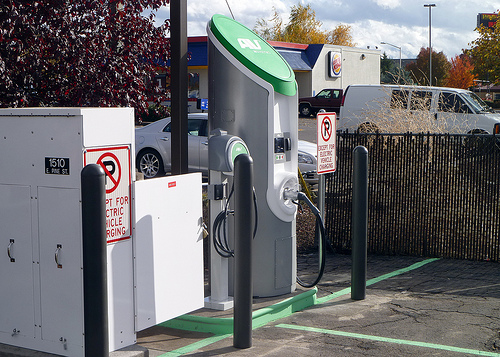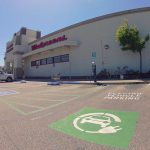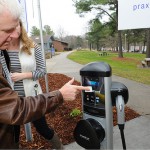Beware “charge rage” at the workplace EV station
Last fall George Betak, then an employee at Yahoo’s headquarters in Sunnyvale, CA, needed to be somewhere by 6 p.m. He planned to drive there in his BMW Active E but needed to first charge his all-electric vehicle.
Problem was all of the charging stations that the company provided were occupied. Betak noticed that one vehicle—a Chevy Volt, a hybrid with electric and gasoline engines—appeared to have finished charging, so he unplugged it for a half-hour boost to his own car.
“The Volt owner was furious,” Betak told the press later. “He sent out this email blast saying that I stole his charge. It was awful.”
The situation Betak describes—“charge rage”—is becoming increasingly common, especially in northern California, where PG&E expects electric vehicle (EV) ownership to jump from 20,000 today to 800,000 by 2020. Workplaces that offer charging stations — an assumed perk in Silicon Valley (along with stock options and on-site sushi chefs) — can’t keep up with rising EV ownership rates.
“In the beginning, all of our EV drivers knew each other, we had enough infrastructure, and everyone was happy. That didn’t last for long,” said Peter Graf, Chief Sustainability Officer at software company SAP and the owner of a Nissan Leaf.
“If you don’t maintain a 2-to-1 ratio, you are dead,” said Pat Romano, CEO of ChargePoint, operator of the world’s largest network of EV charging stations—15,000 across the United States, Europe, and Australia. “If you are going to do this, you have to be willing to continue to scale it,” he continued.
But adding more charging stations isn’t easy. Businesses often lease the chargers to avoid investing in permanent infrastructure. The chargers’ high price doesn’t help.
With supply unable to keep up with demand, companies are developing procedures to offset the potential for “charge rage” among employees. For instance, at Infoblox, a network-control company with a staff of 260 at its headquarters in Santa Clara, there are just six charging stations, but twenty-seven employees—10 percent of the company—who drive EVs.
Infoblox has addressed the problem by asking staff to sign up for charging times. No one can book for longer than a two-hour window, with a shared online calendar displaying the schedule, and no one is privy to special rights. Management and staff alike follow the same process.
“But Rule No. 1 is: No one touches anyone else’s car without permission,” explained David Gee, the company’s executive vice president of marketing.
When problems arise, employees are quick to email Infoblox’s internal EV-user distribution list: “Will the owner of the red Leaf in Bay #3 move their car now?” So far there appears to be no disciplinary action in the books against those who buck the system because “public shaming is the best motivator,” said Gee.
Related Posts
Category: Green Parking, Parking Tech


















